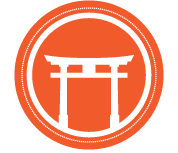Does Rank Matter?
Inryoku Volume 5 Issue 2
By Josh Paul Sensei, AOSB Head Instructor
Two often repeated ideas in the dojo are that “rank doesn’t matter” and that “I just want to train.” The former is usually pronounced by people with an advanced rank, and the latter by students without rank. Although both sentiments have value, both obscure what is important to everybody’s practice: testing.
Students waiting for black belt exams to start at a seminar at Kiku Matsu Dojo, Chicago.
An aikido exam is an obstacle and a challenge. It is an opportunity to test our technique while under pressure, and to execute a technique correctly when genuinely necessary. And every test has the potential to raise the standards of an entire dojo.
In routine practice, it is difficult to generate the type of stress and pressure of demonstrating for our peers and teachers. We are often too familiar and too comfortable with our training partners and environments, and we know what’s going to happen during class. Even at our most mindful and least complacent, the pressure of practice is different from the pressure of performing. In practice, the consequences of a poorly executed technique might include getting hit, injured, embarrassed, frustrated, etc. However, there is no failure. One of the wonderful things about practice is we always get a chance to do it again and to do it better. Not so with testing.
Courtney Paul’s nidan exam.
Testing is finite. In fact, the Aikido World Alliance curriculum has only 11 total kyu and dan exams (7 kyu through yondan). That’s a limited number of chances to demonstrate our aikido and to share our growth with peers and teachers. It makes exam preparation an important process.
Exam preparation is an individual and collective process. Individually, the extra effort and training during the months leading up to an exam brings our practice to a higher, more refined level. Collectively, one person’s preparations can motivate an entire dojo. Exam preparation offers senior students the opportunity to review and reconnect with a dojo’s core curriculum. It gives junior students exposure to what’s to come. For example, when a 7 kyu student is practicing 4 kyu exam techniques, it’ll make that student’s eventual 4 kyu exam easier and better. Exams raise the standard for an entire dojo.
For instructors, exams are an opportunity to see our instruction in action. Exams are the reflection of what’s been taught too much, not enough, and perhaps not at all. They are the mirror that shows our good and bad habits, preferences, and the intentional and unintentional nuances of our aikido.
While it’s true that an aikido rank plus $2.75 will get you a ride on the NYC subway, the process of attaining that rank is important for each student and the dojo community. Testing promotes technical and mental/spiritual growth. It pushes us to the next level of practice. It’s the belt color that doesn’t matter.




